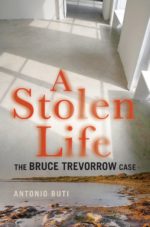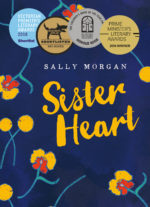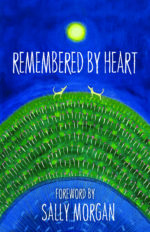A new book by Antonio Buti takes us into the courtroom to explore the landmark Stolen Generations case of Bruce Trevorrow

Dr Antonio Buti is a professor of law at UWA and MLA for Armadale. His latest book, A Stolen Life: The Bruce Trevorrow Case, explores the story of the only member of the Stolen Generations to win compensation for his removal from his family.
Antonio was one of the lawyers who interviewed people and presented submissions to the Bringing Them Home report, part of the National Inquiry into the Separation of Aboriginal and Torres Strait Islander Children from Their Families. The report is an investigation of how government agencies and church missions in Australia forcibly removed Aboriginal children from their families in the twentieth century. These children became known as the Stolen Generations.
Here, Antonio suggests what more can be done to educate the next generation about this period of Indigenous history.
Do you think that the history of the Stolen Generations is taught enough in schools?
I think there’s been an improvement from when I was at high school in the 1970s, but teaching of this period in history still could be more comprehensive. Particularly in high schools where students have the capacity to be able to deal with more complex and emotional subjects and have a greater sense of political awareness. I think that a lot of teachers are aware of that, and there is a growing desire for more resources that help them do this.
The history of the Stolen Generations is significant in the Australian story – both for Indigenous and non-Indigenous Australia. Always be aware that discussing this period in history could be emotionally unsettling and traumatic for some students and members of the community, so take this into account when planning.
Some opportunities for students to study and learn about the Stolen Generations could be provided by:
- having students read literature dealing with this history
- studying books and other works by members of the Stolen Generations.
- undertaking in-depth study on specific books or cases or the national inquiry – probably best to be done in small groups.
How can teachers bring these themes into the classroom?
A good place to start would be to look at the teaching resources developed by the Human Rights Commission to accompany the Bringing Them Home report. This is a sensitive topic so I’d recommend reading through these teaching resources in the first instance.
My book, A Stolen Life, is another place to start, but reading books written by Aboriginal authors is really important too. Try Sally Morgan’s Sister Heart for younger age groups, or the anthology Remembered by Heart edited by Sally Morgan for a diverse range of Aboriginal Australian experiences.
Are there any other cases, apart from Bruce’s, that you think are important in the exploration of the Stolen Generations?
Bruce Trevorrow’s case was a rarity because he won, but there are many other members of the Stolen Generations whose stories have not been heard because they weren’t. There were many, many cases that were referred to in the Bringing Them Home report of 1997, all with their own stories to tell. But the Trevorrow case is unique from a legal perspective as the only successful Stolen Generations case.
What does NAIDOC Week mean to you?
For me, it’s a week to focus on our history and relationship with Indigenous peoples and to ask ourselves how we can improve the relationship between Indigenous and non-Indigenous Australia. While this week is understandably a time of focus, I also think it should be a springboard for continuing learning and reconciliation.
I’ll be attending NAIDOC Week assemblies at some of my local schools.
A Stolen Life: The Bruce Trevorrow Case by Antonio Buti is available from 1 July.
The book will be launched at the University of Western Australia on Thursday 20 June in the Law Lecture Theatre from 6 pm. RSVP here.
There will also be a launch at the University of Adelaide on Monday 12 August.





